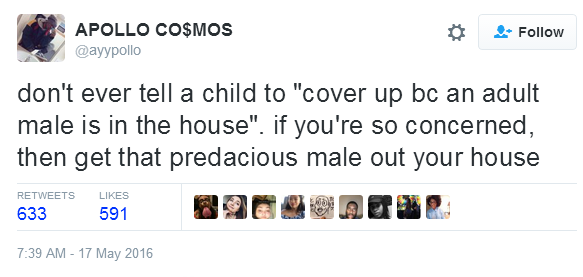So much conversation and debate after yesterday’s post about trigger warnings.
Most of the commenters seemed to agree that:
- No, trigger warnings are not, by themselves, censorship.
- Stephen Fry was being a complete turd cabbage in his article.
But there was discussion of whether the concept of triggers and
content warnings can go too far, and if we can reach a point where it
all becomes damaging. One individual pointed to an article in the
Atlantic as an example that was “better informed”: The Coddling of the American Mind: How Trigger Warnings are Hurting Mental Health on Campus, by Greg Lukianoff and Jonathan Haidt.I started trying to respond to some of the points in that article,
and after 1000 words, had only gotten through the first few paragraphs.
So I’m trying a different approach, and zooming in on just one of their
arguments:[T]here is a deeper problem with trigger
warnings. According to the most-basic tenets of psychology, the very
idea of helping people with anxiety disorders avoid the things they fear
is misguided. A person who is trapped in an elevator during a power
outage may panic and think she is going to die. That frightening
experience can change neural connections in her amygdala, leading to an
elevator phobia. If you want this woman to retain her fear for life, you
should help her avoid elevators.But if you want to help her return to
normalcy, you should take your cues from Ivan Pavlov and guide her
through a process known as exposure therapy.NO YOU SHOULD NOT, BECAUSE YOU ARE NOT A THERAPIST!!!
(If you are a trained and licensed therapist, please replace the previous statement with, NO YOU SHOULD NOT, BECAUSE YOU ARE NOT HER THERAPIST!!!)
Exposure Therapy and Systematic Desensitization are processes. They’re done in a controlled environment, with preparation and planning, which includes letting the patient know what’s coming. I.e., giving them a warning.
You might as well say, “Hey, Electroconvulsive Therapy is still
sometimes used to treat depression, and you’ve been feeling down, so I’m
gonna plug in this toaster and drop it into the bath with you!”As someone who earned a degree in psychology, has been a rape counselor, has been in
counseling, and married a license therapist, do me a favor and knock it
off with the armchair psychologist crap before you seriously hurt
someone.THIS
THANK YOU JIM HINES
Trigger Warnings as an Impediment to Healing and Mental Health
Comments Off on Trigger Warnings as an Impediment to Healing and Mental Health


